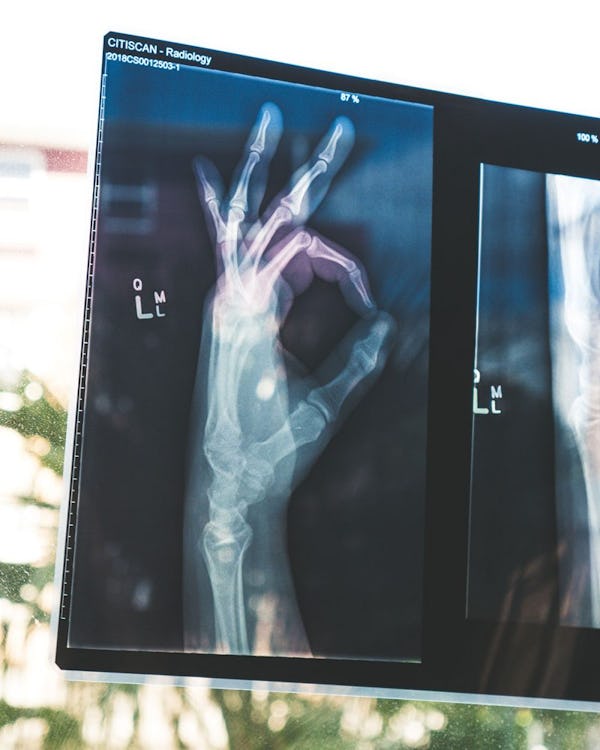Summary:
– Vitamin D is an unusual vitamin because it acts like a hormone in your body. It helps the bones absorb calcium, supports the immune system and may aid strength gain and fat loss.
– Vitamin D is made in the body when your skin absorbs ultraviolet light, but most people don’t get enough sunlight to reach adequate levels
– Deficiency of vitamin D is common, so consuming a D supplement may be beneficial
– The D3 version of the vitamin is absorbed better than D2, making it a wiser choice for supplementation
What Is Vitamin D?

While classified as a vitamin, D is unique among vitamins in a few different ways. For one thing, your body makes it itself when it’s exposed to sunlight. For another, it behaves like a steroid in the body (no, not that kind of steroid), meaning that it can turn genes on and off. This makes vitamin D an especially powerful nutrient with many potential influences on your health.
When your skin absorbs ultraviolet radiation, a cholesterol precursor in your body is converted to vitamin D3 (one type of D vitamin). However, it’s difficult for most people to get the amount of vitamin D they need from the sun alone. Fortunately, vitamin D is available in food, and many other foods are fortified with it. Nevertheless, vitamin D deficiency is common, and a serious threat to health (see Do I Have A Vitamin D Deficiency? below).
Vitamin D is fat soluble, meaning that it dissolves in fats and oils, and can be stored in the body for long periods. For years, scientists have known that Vitamin D promotes the absorption of calcium and phosphate from the food in your gut, making it a key supporter of bone health. More recently, D has also gotten credit for the role it plays in muscle strength and performance, nerve transmissions, and immune health.
How Do Vitamin D2 and D3 Differ?

There are two main kinds of vitamin D—D2 (ergocalciferol) and D3 (cholecalciferol). D2 is found in plant foods, including fungi like mushrooms and yeasts. D3 is only available in animal foods, and it’s the type of vitamin D your body makes on its own when it’s exposed to UV light.
D2 is inexpensive to produce, so it’s often added to foods—such as milk—to boost their vitamin D content. However, D2 is not as well absorbed by the body as D3. Some studies indicate that D3 may be almost twice as effective at raising levels of vitamin D in the blood as D2 (1, 2, 3). If you supplement with vitamin D to achieve optimal levels, nutrition experts generally recommend choosing vitamin D3 supplements.
According to an American Journal of Clinical Nutrition report, medical literature regarded D2 and D3 “as equivalent and interchangeable” for many years, “yet this presumption of equivalence is based on studies of rickets prevention in infants conducted 70 years ago¦
Despite an emerging body of evidence suggesting several plausible explanations for the greater bioefficacy of vitamin D3, the form of vitamin D used in major preparations of prescriptions in North America is vitamin D2.”
In addition to failing to raise blood levels of the vitamin as well as D3, D2 also has a shorter shelf life. Therefore, the Journal concludes, D2 “should not be regarded as a nutrient suitable for supplementation or fortification.” However, some D2 supplements are oil-based, and may be more shelf-stable and bioavailable as a result. More research is needed to see how they compare to D3, but, in the meantime, D3 supps seem to be the smarter alternative.
What Does Vitamin D Do For the Body?

Due to vitamin D’s ability to act like a hormone in the body, it has the ability to support multiple aspects of health. While it’s long been known to help regulate bone health and growth, D has also been linked to the following.
Strength
A 2015 meta-analysis of seven studies found that vitamin D supplementation significantly aided gains in upper- and lower-limb strength. The subjects ranged from 18 to 40 years of age.
Weight Management
A 2014 study in The American Journal of Clinical Nutrition followed overweight and obese women on a diet and exercise routine for one year. Half the subjects received a vitamin D supplement, and the other half a placebo. Researchers found that the ones who got up to healthy vitamin D levels lost more weight than the placebo group—by an average of seven pounds.
Meanwhile, another study in Nutrition Journal showed that women who took vitamin D for 12 weeks didn’t lose weight, but their body fat percentages did go down, indicating that D may have helped with recomposition.
Immune Health
Innate immunity is the term used to describe the body’s general defense mechanisms—the ones that turn on when it senses that an unwelcome invader has entered your system. Barriers, such as the skin, and white blood cells—the body’s soldiers in the war against a pathogen—are examples of your innate immune defenses.
Adaptive immunity refers to the immune responses that are specific to a particular antigen (any foreign substance your body wants to get rid of). These include the antibodies you develop when you’re recovering from a cold, so that the same virus doesn’t make you sick again in the future.
Vitamin D has been shown to help modulate both innate and adaptive immune responses (The Journal of Investigative Medicine), supporting a strong immune system. In 2017, a review published in the British Journal of Medicine analyzed 11,321 people from 14 different countries. It concluded that vitamin D supplementation helped promote immunity in both subjects who were deficient in the vitamin, as well as those who had healthy levels.
At the same time, a lack of D in the diet can wreak havoc on health.
One study published in Archives of Internal Medicine followed 19,000 subjects for six years. Those with lower vitamin D levels were more likely to report upper respiratory health issues than those who were getting sufficient D. Meanwhile, a review in the Journal of Investigative Medicine explains that a D deficiency is associated with increased susceptibility to health issues.
Do I Have A Vitamin D Deficiency?

Most people living in first-world countries don’t have many vitamin deficiencies. We can get most of the nutrients we need through food alone, and many foods have vitamins added to them to ensure that we get enough. Vitamin D deficiency, however, is still rampant, even among otherwise healthy people.
The main reason why is lack of sun exposure. Contrary to what you might think, just walking around outside on a sunny day usually isn’t enough, even if you live on a tropical island. Clouds and shade dramatically cut down on ultraviolet light—the stuff that your skin needs to produce vitamin D—and window glass blocks it completely. Furthermore, the National Institutes of Health explain that wearing sunscreen with an SPF of eight or more won’t allow your body to absorb enough light to make D, although it’s obviously important to use some anyway to avoid sunburn and long-term skin damage.
Ethnicity also plays a factor. Melanin is a pigment that darkens the skin, but it also reduces the skin’s ability to absorb vitamin D. African Americans and Hispanics typically have more melanin than white people, so they tend to be more deficient.
A Nutrition Research study concluded that more than 41% of Americans are deficient in vitamin D. African Americans and Hispanics are most at risk, as 82% and 69% are deficient, respectively. The study went on to say that, “deficiency was significantly more common among those who had no college education, were obese, with a poor health status, hypertension, low [HDL] cholesterol level, or not consuming milk daily.”
Looking more closely at obese populations, the National Institutes of Health observe that “obesity does not affect skin’s capacity to synthesize vitamin D, but greater amounts of subcutaneous fat sequester more of the vitamin and alter its release into the circulation.” Even if an obese person gets bypass surgery to aid weight loss, his/her vitamin D levels will still be suspect, as the part of the small intestine that absorbs D is bypassed.
Senior citizens are also in jeopardy. A trial in the American Journal of Geriatric Pharmacotherapy stated that elderly subjects had insufficient D levels, “despite vitamin D intake consistent with national recommendations.”
Just what the recommended D dose should be is a subject of great debate. The current Recommended Dietary Allowance (RDA) for vitamin D is 15 micrograms, or 600 IU, for people up to age 70. (Folks older than that need 20 micrograms, or 800 IU.) A serving or two of fatty fish, such as salmon or trout, should have it covered. However, these recs might be very optimistic. A review of vitamin D studies in Nutrients accuses the current RDA of being flat out inaccurate because of an error in math. It concludes that, “With the current recommendation of 600 IU, bone health objectives and disease and injury prevention targets will not be met.” The appropriate IU, the researchers assert, may be many times more than what is currently advised.
Evidence published in Advances in Experimental Medicine and Biology agrees, suggesting that significantly higher doses, such as a minimum of 25 micrograms/1000 IU of D is more appropriate. The Journal of Clinical Endocrinology and Metabolism also explains that at least 1,500–2,000 IU per day may be necessary for adults, and at least 1,000 IU for children and teens. The Linus Pauling Institute echoes these numbers as well.
If reading all this has sent you scrambling to the cabinet for your multivitamins, your next question may be, “how much vitamin D is too much?” The National Institutes of Health say you can probably get as much as 100 micrograms/4,000 IU before you see side effects, which may include nausea, poor appetite, weakness, and weight loss. Vitamin D toxicity is rare, however, and it mainly comes from overuse of vitamin supplements. (You can’t get too much D from the sun, as your body will shut down production before then.) One review showed that there were no health risks associated with consuming 1,800–4,000 IU of D daily.
Whatever the optimal D dose may be, it seems fair to assume that we should all get our levels tested and, if low, aim to take in more. An article in the Journal of Evidence-Based Complementary & Alternative Medicine calls vitamin D deficiency “pandemic,” noting that health organizations worldwide are refocusing on the importance of D due to the discovery that “vitamin D receptors are present in nearly every tissue and cell in the body and that adequate vitamin D status is essential for optimal functioning of these tissues and cells.” It concludes that it is “imperative that all individuals be encouraged to obtain vitamin D from either sunlight or supplementation.”
What Are The Best Sources of Vitamin D?

It’s hard to get enough vitamin D from sunshine, but it’s even harder to get it from food—at least the way most people eat. The best source of dietary D is from fish livers, such as cod liver oil, but now ask yourself¦ when was the last time you ate cod liver oil?
Mackerel, salmon, sardines, swordfish, trout, and tuna all offer D, as do mushrooms and eggs. If you eat them regularly, you’ll meet the government-recommended requirement, but if you’re in the camp that thinks 600 IU is too low, you’ll need to be more aggressive to hit your D goals. Dairy products and cereals are fortified with vitamin D, which helps, but one review, and Harvard University, determined that supplementation with a multivitamin or concentrated vitamin D capsule provides a better insurance policy.
Of course, you shouldn’t completely avoid the sun. According to a report in Alternative Medicine Review, “the health benefits accruing from moderate UV irradiation, without erythema [reddening of the skin] or excess tanning, greatly outweigh the health risks, with skin pigmentation (melanin) providing much of the protection.”
The National Institutes of Health note that getting five to 30 minutes of sun on the face, arms, back, or legs—without sunscreen and between 10 a.m. and 3 p.m. at least twice a week—is usually enough to promote sufficient vitamin D synthesis in the skin. However, sun exposure, especially at these hours, can be difficult to get, and particularly during winter time, or during work weeks with a busy schedule. This is why scientists frequently recommend supplementation.
Why Take Vitamin D and K?
Vitamin K has similarities with vitamin D. It’s fat-soluble, found in egg yolks and liver, as well as some plant foods, and, like vitamin D, it assists calcium in promoting strong bones. K works with D to make sure calcium gets where it needs to go without causing a problem.
Here’s what we mean: your blood levels of calcium need to stay at a certain level. When you don’t get enough calcium from your diet, one of vitamin D’s functions is to take it from your bones and move it into your bloodstream. Obviously, this isn’t ideal, but if you generally get enough calcium in your diet, it isn’t cause for concern.
While D takes calcium from your bones, it doesn’t control where it ends up in the body. Vitamin K steps in as a protective measure, seeing that the calcium doesn’t accumulate in places that could be dangerous, such as the blood vessels or kidneys. For this reason, some people believe that any vitamin D you take should be supplemented with vitamin K. In cases where vitamin D intake was too high, some subjects ended up with too much calcium in their blood, suggesting that, if taken, vitamin K might have helped to regulate the buildup and prevent the problem.
But to date, there’s no compelling evidence to show that any of the aforementioned recommended doses of vitamin D are harmful with or without vitamin K in tow. If it turns out that the two should be taken together, however, chances are that you’re already covered. Unlike vitamin D, vitamin K is available in large amounts in many commonly eaten foods, such as spinach, parsley, kale, and soft cheeses. And because K is fat-soluble, it will last in your body a while after each serving.

)






